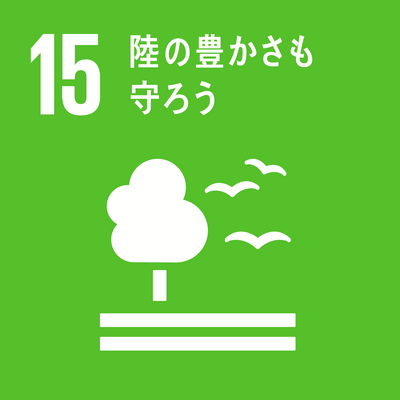シラバス表示
シラバスの詳細な内容を表示します。
→ 閉じる(シラバスの一覧にもどる)
科目の基本情報
| 開講年度 | 2024 年度 | |
|---|---|---|
| 開講区分 | 生物資源学部 | |
| 受講対象学生 |
資源循環学科・農業生物学教育コース 学部(学士課程) : 3年次 農業生物学教育コース3年対象科目 |
|
| 選択・必修 | 必修 コース必修科目 |
|
| 授業科目名 | 農林生物学英語 | |
| のうりんせいぶつがくえいご | ||
| Biological English for Agriculture and Forestry | ||
| 単位数 | 2 単位 | |
| ナンバリングコード | BIOR-Reso-2031-002
|
|
| 開放科目 | 非開放科目 | |
| 開講学期 |
前期 |
|
| 開講時間 |
水曜日 1, 2時限 |
|
| 授業形態 |
対面授業 * 状況により変更される可能性があるので定期的に確認して下さい
「オンライン授業」・・・オンライン会議ツール等を利用して実施する同時双方向型の授業 |
|
| 開講場所 | ||
| 担当教員 | タラガラ,ジャガット | |
| THALAGALA Arachchige Tharanga, JAGATH Siri Kularatne | ||
| SDGsの目標 |
|
|
| 連絡事項 | Students are split into two groups, with each group receiving separate instruction from two different teachers to ensure focused supervision. It is expected that students dedicate time to prepare for and review lessons to become acquainted with scientific English. Enthusiasm for learning plays a crucial role in enhancing students' reading, listening, writing, critical thinking, and speaking skills. * 状況により変更される可能性があるので定期的に確認して下さい |
|
学修の目的と方法
| 授業の概要 | Given the significant impact of climate change and population growth on agriculture and the environment, global collaboration, technology dissemination, and research sharing are crucial. This course, conducted in English, aims to deepen understanding in agrobiology and forestry, aligning with the language used in the majority of international organizations and academia. Students will explore key scientific principles in crop production, soil management, pests, pathology, climate change, agroecology, and sustainable development. Through English-language lectures, the course emphasizes presentation, writing, and communication skills. Graduates will possess both theoretical knowledge and practical skills to address future agricultural challenges, adeptly communicating their solutions in English. |
|---|---|
| 学修の目的 | To offer foundational insights into agrobiology and forestry within an English-language context. To cultivate the ability to articulate ideas effectively in written English and expand scientific vocabulary, particularly in the domains of forestry and agrobiology. To enhance English communication proficiency through engaging in discussions, delivering formal presentations, and fostering critical thinking through questioning during presentation sessions. To foster the development of adaptable and multifaceted human capital in an era of rapid globalization. |
| 学修の到達目標 | Upon completion of this course, students will be able to Enhance their foundational understanding of agrobiology and forest sciences. Proficiently engage with English-medium lectures. Effectively extract scientific information from English discourse and articulate it in formal reports. Demonstrate the ability to conceptualize scientific concepts and present them through various mediums such as PowerPoint or posters, while also adeptly responding to questions and posing logical inquiries in English. Participate in both national and international research endeavors and projects. Access job opportunities in both domestic and international industries. |
| ディプロマ・ポリシー |
|
| 成績評価方法と基準 | Homework [40%], Presentation [30%], In-class activities [30%]. Students must attend more than 70% of the classes to obtain credits. |
| 授業の方法 | 講義 |
| 授業の特徴 |
プレゼンテーション/ディベートを取り入れた授業 グループ学習の要素を加えた授業 その他、能動的要素を加えた授業(ミニッツペーパー、シャトルカードなど) 教員と学生、学生相互のやり取りが、ほぼ英語で進められる授業 |
| 授業アンケート結果を受けての改善点 | In the class, students are encouraged to communicate confidently in English without fear of language errors. The instructors articulate their points deliberately and clearly, ensuring students grasp concepts accurately. Lecture contents may be adjusted slightly to accommodate student proficiency. |
| 教科書 | Details regarding textbooks and supplementary references shall be furnished during the guidance session. Furthermore, digital versions of scholarly materials will be provided as necessary. |
| 参考書 | Notify the students during guidance as necessary. |
| オフィスアワー | Students are welcome to consult with teachers either before or after lessons, or alternatively, by scheduling an appointment via email. jagath@bio.mie-u.ac.jp tharanga@bio.mie-u.ac.jp |
| 受講要件 | 農業生物学コースの関連科目を受講していること。 |
| 予め履修が望ましい科目 | 特になし |
| 発展科目 | 卒業研究 |
| その他 |
授業計画
| MoodleのコースURL |
|---|
| キーワード | soil, fungi, technical writing, agroforestry, plant productivity, sustainable agriculture, climate change |
|---|---|
| Key Word(s) | soil, fungi, technical writing, agroforestry, plant productivity, sustainable agriculture, climate change |
| 学修内容 | Reading sessions involve passages related to agriculture, forestry, and biology. Students engage in intensive reading to comprehend the content and articulate its meaning in English. Writing sessions entail the preparation of concise reports based on lecture notes or information from various sources. Homework assignments typically include questionnaire responses. Communication sessions consist of group presentations, with students divided into small groups of 3 to 5 members. Each member delivers a 10-minute presentation, followed by creative and logical questioning from the audience. 第1回:Guidance: Discussion on the course purpose, lesson contents, examination, evaluation system, etc. 第2回:Soil part-1: Soil composition, formation, and properties. 第3回:Soil part-2: Soil degradation and land conservation methods. 第4回:Fungi part-1: Classification, structure, and mode of feeding. 第5回:Fungi part-2: Reproduction and fungal plant root association. 第6回: Technical writing in English. 第7回:Presentation and discussion-1 (in English). 第8回:Presentation and discussion-2 (in English). 第9回:Introduction to agroforestry. 第10回: Agroforestry systems and practices. 第11回: Plant productivity principles. 第12回:Manipulation of photosynthesis in agroforestry. 第13回:Sustainable agriculture and climate change mitigation through agroforestry. 第14回:Presentation and discussion-3 (in English). 第15回:Presentation and discussion-4 (in English). 第16回:No end-semester examination. |
| 事前・事後学修の内容 | Conduct both pre- and post-study activities for each session. <Pre-study: 120 minutes> Prepare to deliver presentations and engage in basic English discussions. Thoroughly read and comprehend the assigned materials beforehand. Expect occasional quizzes to review prior lessons, necessitating thorough revision. <Post-study: 120 minutes> Actively participate in class discussions. Take initiative in addressing unfamiliar words or expressions encountered during class, and commit them to memory through review. Dedicate time for independent practice to enhance comprehension of English conversation. |
| 事前学修の時間:120分/回 事後学修の時間:120分/回 |



